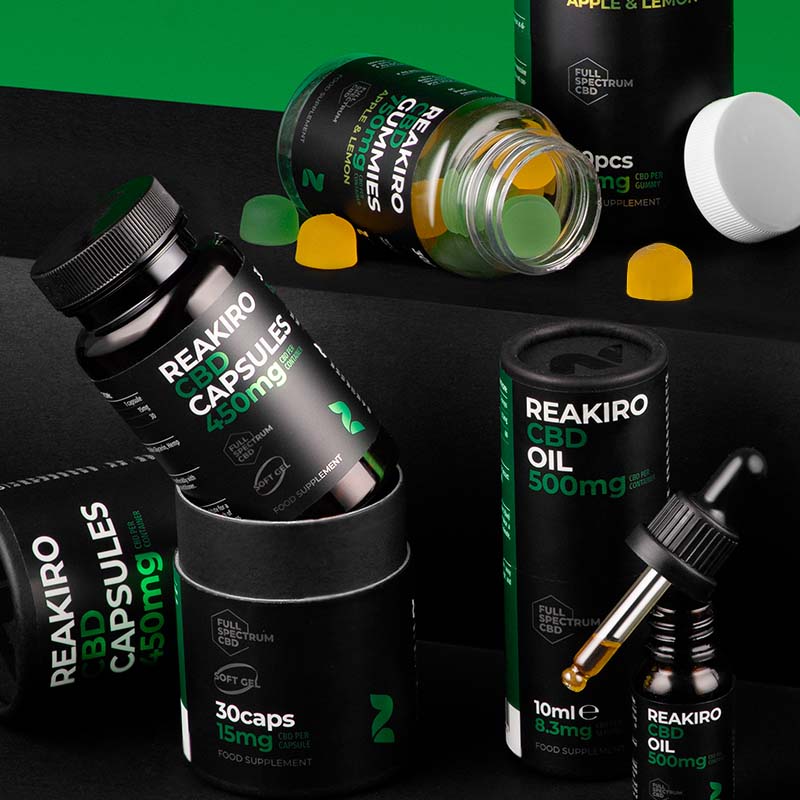Table of Contents
Affecting millions of people worldwide, PTSD is a debilitating condition triggered by traumatic events that often leaves sufferers struggling with intense anxiety, insomnia and flashbacks. Traditional treatments, while helpful, do not work for everyone and can have significant side effects. This has led many to explore alternative therapies, like Cannabis and CBD. This article will research the available scientific evidence behind the use of CBD in the treatment of PTSD, as well as provide practical advice for those considering CBD as part of their treatment plan.
Understanding PTSD
Definition of PTSD
This condition often develops after experiencing or witnessing a traumatic event. These events can include combat, natural disasters, accidents, assaults, or any situation that causes intense fear, helplessness, or horror. People with post-traumatic stress disorder often relive the traumatic event that happened to them through flashbacks and nightmares and may experience severe anxiety, as well as avoidance of reminders of the event and emotional numbness.
Causes
PTSD can be triggered by traumatic events like military combat, physical or sexual assault, childhood abuse, natural disasters, severe accidents and witnessing violence. Of course, it is worth mentioning that not everyone who experiences a traumatic event will definitely develop PTSD; factors such as genetics, personal history and the nature of the traumatic event all play a role in determining a person's risk.
Current Treatments
Medical treatment for PTSD typically involves a combination of psychotherapy and medication. Cognitive behavioural therapy (CBT), in particular a subtype called trauma-focused CBT, is regarded as one of the most productive forms of therapy. EMDR, short for the Eye Movement Desensitization and Reprocessing, is another therapeutic approach with demonstrated promise. Medications (selective serotonin reuptake inhibitors) and other antidepressants are frequently prescribed to assist in symptom management. Nevertheless, it is important to note that these treatments are not universally effective and can potentially cause significant adverse effects, including weight gain, insomnia, and sexual dysfunction. This has led to a growing interest in exploring alternative treatments such as CBD, which may offer relief with fewer side effects.
CBD and PTSD: The Research
Research into the potential effects of cannabidiol on post-traumatic stress disorder is currently in its early stages. However, initial studies and evidence suggest that CBD may offer some relief to those suffering from this condition. This section will examine the existing CBD PTSD research, focusing on key findings, expert opinions, and the necessity for further investigation to substantiate these preliminary results.
- ➤ According to a 2018 review by Rafael M. Bitencourt and Reinaldo N. Takahashi published in Frontiers in Neuroscience, there’s growing evidence from human and animal studies that CBD could be a valuable treatment for inappropriate responses to traumatic memories. CBD seems to affect different stages of aversive memory processing, which makes it a good candidate for use as a pharmacological adjunct to psychological therapies for PTSD. CBD also has a better side-effect profile than the current pharmacological therapy used to treat this type of disorder. Moreover, even at high doses, CBD doesn't have the same anxiogenic profile as other compounds that directly activate eCB transmission. However, even though there’s evidence that CBD affects the eCB system, more studies are needed to understand the neurobiological mechanisms involved in CBD responses, as well as controlled studies to show that CBD is effective for PTSD in humans. While there’s still a lot to learn about how CBD affects PTSD symptoms, some progress has been made, which could lead to a new way of using CBD to treat patients with trauma and stress-related disorders.
- ➤ Although current literature suggests that cannabis and synthetic cannabinoids may play a role in the treatment of PTSD, there is limited evidence of their safety and efficacy. As a result, further research is needed better to understand the effectiveness and therapeutic applications of these substances and monitor their safety, according to a 2019 systematic review published in Medicina (Kaunas).
- ➤ In a 2019 case series, a sample of 11 patients, 91% experienced a reduction in PTSD symptoms. After eight weeks of consecutive CBD treatment, the average total PCL-5 score decreased by 28%. CBD was generally well tolerated, with no patients stopping treatment because of side effects. Adding oral CBD to usual psychiatric care helped reduce PTSD symptoms in adults. CBD also helped some patients who had nightmares as a result of their PTSD. Further clinical studies on this matter are needed to confirm the results of CBD use.
How to Use CBD for PTSD
A review of existing research indicates that while CBD has shown promise in alleviating PTSD symptoms, potential side effects need to be considered.
Potential positive aspects of CBD PTSD treatment:
- Symptom reduction: CBD may help with PTSD symptoms like anxiety and insomnia. Studies and reports show that CBD can help reduce these symptoms, improving quality of life.
- Non-intoxicating. CBD doesn't make you high like THC. This makes it a better option for those looking for symptom relief without getting high.
- Tolerance: CBD is generally well tolerated and safe, according to the WHO report. Side effects are usually rare, and there is less risk of dependency than with traditional PTSD treatments.
Potential negative aspects of CBD for PTSD:
- Limited research: While studies are promising, there is still limited evidence about the long-term safety and efficacy of CBD for PTSD. Further research is needed, including double-blind, placebo-controlled trials.
- Not all people respond the same way to CBD. Not everyone responds to CBD. Some people don't get much relief, and how much they get varies greatly.
- Potential interactions: CBD can affect other drugs, making it harder for people taking multiple prescriptions to get the right treatment.
Side effects
Some people may experience side effects when taking CBD, although this substance is generally well-tolerated. These effects may include dry mouth, which can be managed with increased water intake; drowsiness, which may affect daily activities; changes in appetite, either increasing or decreasing; and diarrhoea.
Older adults may be more susceptible to the sedative effects of CBD, which could increase the risk of falls or accidents, requiring careful dosage adjustment and monitoring by healthcare practitioners. The impact of CBD on pregnant women and the developing fetus has not been well studied, and it is generally recommended by CBD manufacturers and healthcare providers that pregnant women avoid using CBD.
Allergens and Allergic Reactions
It is important to be aware that CBD products can contain various allergens, depending on their form and ingredients. Some common allergens in CBD products include carrier oils, such as coconut oil, which can cause allergic reactions in sensitive individuals, and additives and flavours, as some CBD products contain artificial flavours or preservatives that could trigger allergies.
Although rare, allergic reactions to CBD may include skin rashes or itching, such as contact dermatitis or other skin reactions; respiratory problems, such as difficulty breathing or asthma-like symptoms may occur, especially when CBD is inhaled; gastrointestinal problems, such as nausea, vomiting or abdominal pain.
Individuals with known allergies to components in CBD products should check product labels for potential allergens and consult a healthcare provider before use.
Choosing the Best CBD Form and Dosage for Your Needs
CBD PTSD Dosage: How to determine?
The determination of an appropriate CBD dosage for PTSD or other conditions can be challenging, as the dosage required varies based on individual factors such as body weight, metabolic rate, the severity of symptoms, and the individual's response to CBD. It is vital to begin slow and low with CBD dosage, monitor the effects, and gradually increase the intake. It is also highly recommended that guidance be sought from a healthcare professional who is well-acquainted with the use of CBD to ensure the safe and effective administration of the substance.
A typical starting dose is between 10 and 20 mg per day, with the possibility of gradually increasing the dose. It is essential to monitor symptoms and side effects during this period in order to determine the optimal dosage.
Best CBD for PTSD: Forms
CBD is available in various forms, each offering distinct advantages regarding dosage accuracy, convenience, and absorption rate. The most suitable form for an individual may depend on their specific needs and preferences.
Description: CBD oil or tinctures are liquid extracts of CBD, usually combined with a carrier oil such as coconut or hemp seed oil.
Dosage: They usually come with a dropper for precise dosage control. Users can place drops under the tongue (sublingual administration) for rapid absorption.
Advantages: It is fast-acting, easy to adjust dosage, and versatile (it can be added to food or drink).
Description: Capsules contain a pre-measured CBD oil dose, encapsulated for easy swallowing.
Dosage: Each capsule contains a specific amount of CBD, providing a consistent dose.
Advantages: Convenient, discreet and easy to incorporate into daily routine; no need to measure doses.
Description: Edibles include gummies, chocolates and other food products infused with CBD.
Dosage: Each edible contains a specific amount of CBD, ensuring consistent dosing.
Benefits: Tasty and enjoyable way to consume CBD, discreet, easy to dose.
Description: CBD sprays are liquid forms of CBD sprayed directly into the mouth.
Dosage: Each spray delivers a specific amount of CBD, allowing for easy dosage adjustments.
Advantages: Convenient, portable, and fast-acting when sprayed under the tongue.
Description: Topicals include CBD-infused creams, lotions and balms applied directly to the skin.
Dosage: Dosage could be more precise and depend on the amount applied.
Benefits: Ideal for localised relief of pain or inflammation, not systemic.
By gaining an understanding of the various forms of CBD, consulting a healthcare practitioner and starting with an appropriate dosage, individuals could effectively integrate CBD into their treatment plans for PTSD and other conditions.
Conclusion
This article considers the potential of CBD as a treatment for PTSD, examining the available scientific evidence and providing practical advice for those considering its use. A review of the literature in 2018 in Frontiers in Neuroscience and a systematic review in 2019 in Medicina (Kaunas) led to the conclusion that while CBD shows promise in reducing PTSD symptoms, further research is needed to understand its efficacy and safety fully. Moreover, it is essential to be aware of the advantages and disadvantages of CBD, numerous forms of CBD, and potential side effects and interactions. A healthcare provider should be consulted prior to the incorporation of CBD into a treatment plan in order to ensure the safe and effective use of the substance.
References
- Cannabidiol as a Therapeutic Alternative for Post-traumatic Stress Disorder: From Bench Research to Confirmation in Human Trials
- UUse of Medicinal Cannabis and Synthetic Cannabinoids in Post-Traumatic Stress Disorder (PTSD): A Systematic Review
- Cannabidiol in the Treatment of Post-Traumatic Stress Disorder: A Case Series
- Cannabidiol in Anxiety and Sleep: A Large Case Series
- CANNABIDIOL (CBD) Critical Review Report



